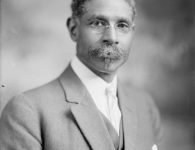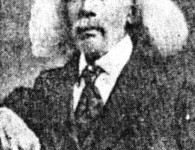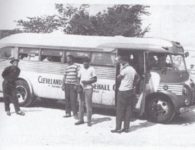The Supreme Court rules a Jim Crow laws to be unconstitutional in a case that putting Arthur W. Mitchell against the U.S railroad industry.
BACKGROUND
On April 20, 1937, Tuskegee Institute Black U.S Congressman, Rep. Arthur W. Mitchell (D-IL), boarded a train to Hot Springs, AR and was to ride first class. While heading through Memphis, TN Representative Mitchell transferred trains. Mitchell requested a sleeper coach which would’ve cost 90-cents. A conductor collecting fares as the train headed into Arkansas saw Rep. Arthur W. Mitchell in what was the White car and ordered him to the Black car.
This was one of many Jim Crow laws put in place to soothe White animosity towards Black people’s freedom. The Separate Coach Law is as it sounds: separate cars for Black and White passengers on trains. It has its origins in a law from Louisiana—the Separate Car Act—from 1890.
Whenever similar incidents came to the District Courts, it was often ruled the same. As long as Black and White people got similar accommodation and treatment, a state could legally separate them. Of course, there was rarely follow up to see if treatment was equal.
In the case Arkansas’ law, if Mitchell chose to not adhere he would be charged anywhere between $10 to $200. Mitchell refused as he paid for a first class ticket. The conduct would threaten the Congressman with a sheriff coming.
LEGAL PROCEEDINGS
Following his scheduled appearance in Arkansas, Representative Mitchell discussed the situation with fellow lawyers. Mitchell went to the Interstate Commerce Commission with his complaint. Representative Mitchell pointed out how the conditions in the Black car. “Poor ventilated, filthy, filled with stench and odors emitting from the toilet and other filth, which is indescribable,” he said. Mitchell also noted that the conductor used profanity and slurs towards him. As for the White car, well that car was textbook first class.
The Interstate Commerce Commission turned down the complaint 7-5 stating. The ICC’s said the discrimination wasn’t “unjust or undue.” The Northern District of Illinois U.S District Court said the discrimination towards Black people asking for first class was warranted.
It took some time, but Mitchell v. United States et al. Reached the U.S Supreme Court in 1941 aiming at damages of $50,000. The U.S Supreme Court found that the railroad had discriminated against Mitchell and ordered the District Court’s decision reversed. The ICC was also to get in line with the Supreme Court’s decision.
AFTERMATH
Years later Mitchell was rewarded $3,750 in a civil suit. However, his political career was ruined as the legal pursuit upset White politicians in Chicago. Arthur W. Mitchell would retire in 1942 and move to Virginia where he ran a farm and passed in 1968.
SOURCE
http://www.encyclopediaofarkansas.net/encyclopedia/entry-detail.aspx?search=1&entryID=6277
http://www.encyclopediaofarkansas.net/encyclopedia/entry-detail.aspx?entryID=2244




















No comments